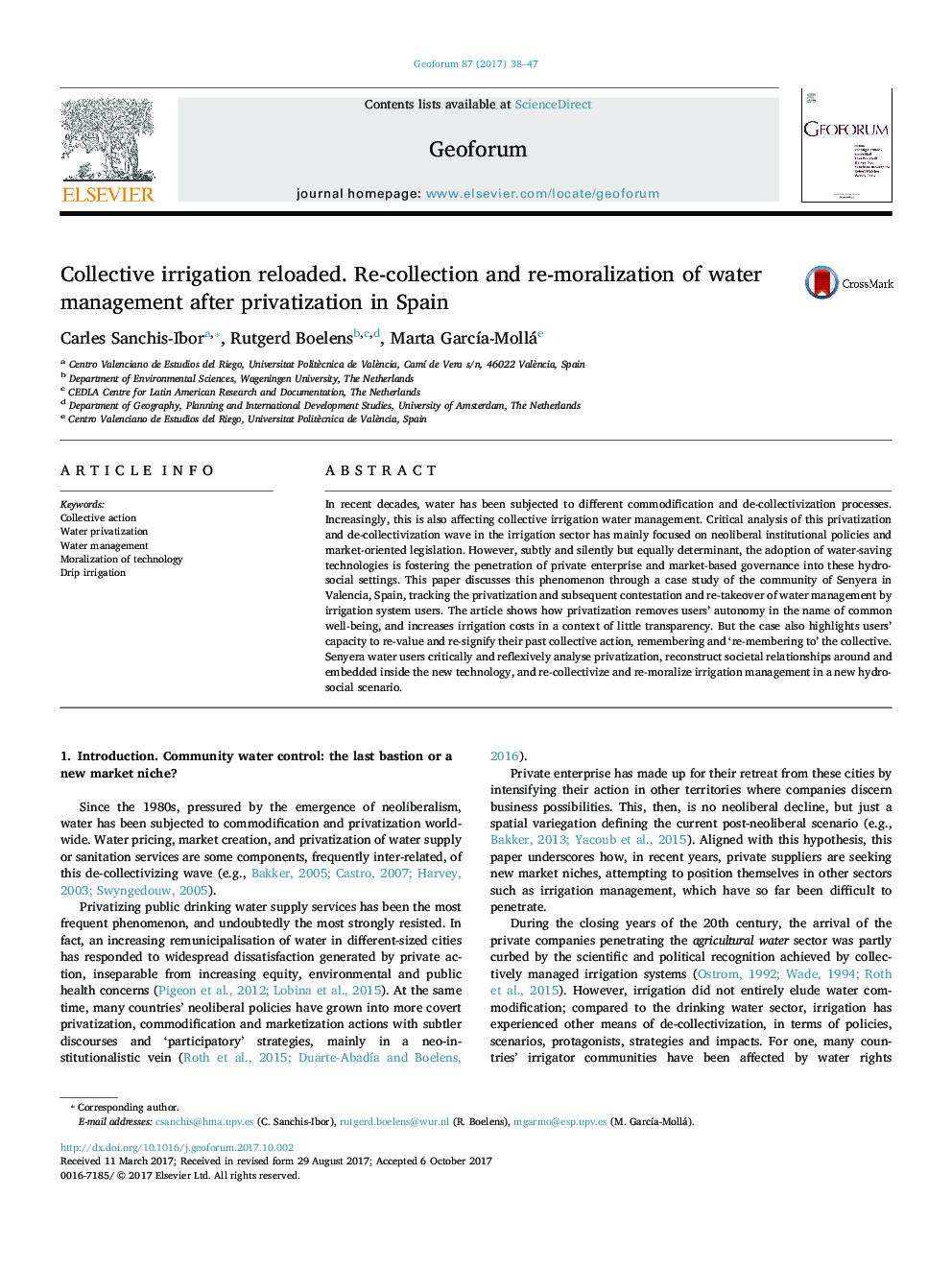| Article ID | Journal | Published Year | Pages | File Type |
|---|---|---|---|---|
| 5073139 | Geoforum | 2017 | 10 Pages |
â¢Forceful service company penetration into irrigation management is expanding.â¢Drip irrigation adoption is a Trojan horse facilitating private sector intrusion.â¢We analyse disputed privatization and return to collective control.â¢Privatization removes transparency, users' autonomy and increases irrigation costs.â¢Users can reload and 're-member' their collective action, re-moralizing management.
In recent decades, water has been subjected to different commodification and de-collectivization processes. Increasingly, this is also affecting collective irrigation water management. Critical analysis of this privatization and de-collectivization wave in the irrigation sector has mainly focused on neoliberal institutional policies and market-oriented legislation. However, subtly and silently but equally determinant, the adoption of water-saving technologies is fostering the penetration of private enterprise and market-based governance into these hydro-social settings. This paper discusses this phenomenon through a case study of the community of Senyera in Valencia, Spain, tracking the privatization and subsequent contestation and re-takeover of water management by irrigation system users. The article shows how privatization removes users' autonomy in the name of common well-being, and increases irrigation costs in a context of little transparency. But the case also highlights users' capacity to re-value and re-signify their past collective action, remembering and 're-membering to' the collective. Senyera water users critically and reflexively analyse privatization, reconstruct societal relationships around and embedded inside the new technology, and re-collectivize and re-moralize irrigation management in a new hydro-social scenario.
